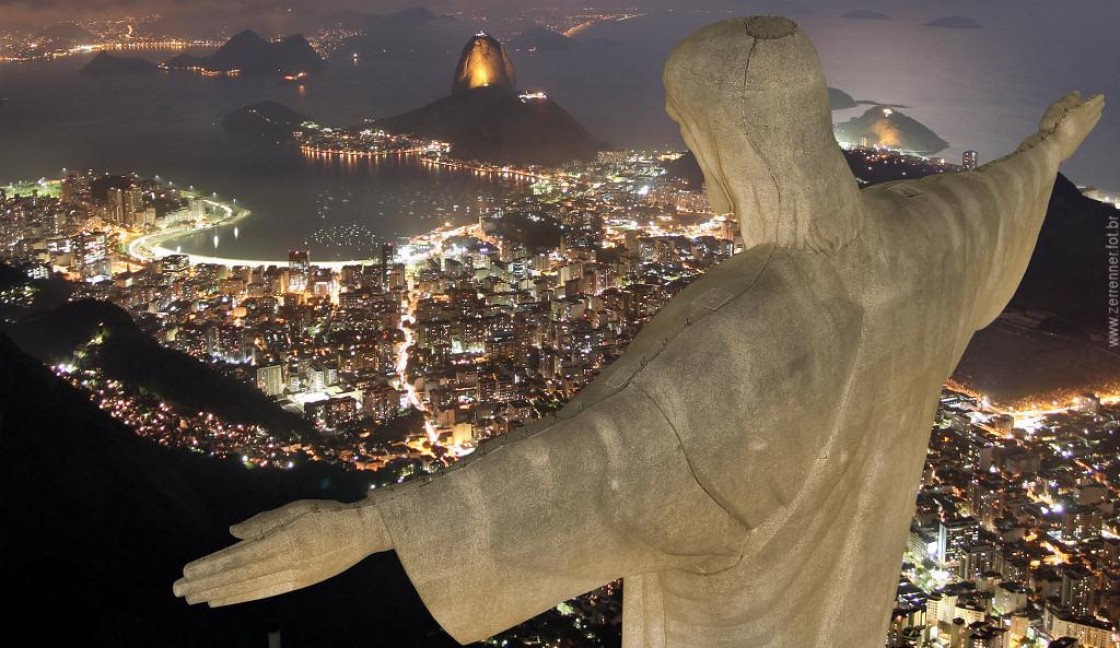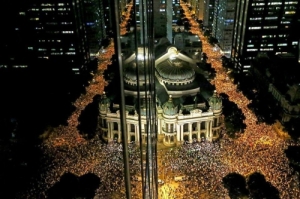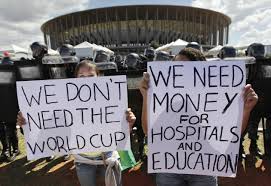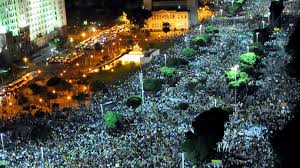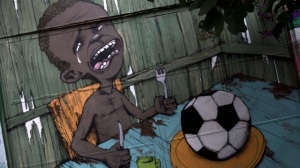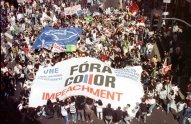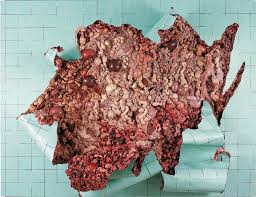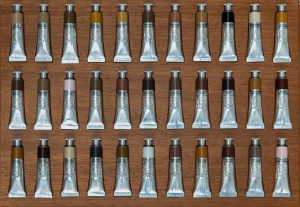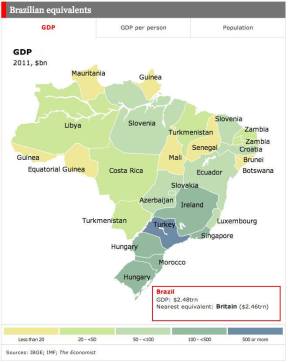The 2013-2014 protests in Brazil are ongoing public demonstrations in several Brazilian cities in response to the 2014 FIFA World Cup and other social issues. The World Cup went really well, but there still a lot of social demands from Brazilians. It is not clear at all what are the demands for specifically, because they are really asking for lot of improvements in social policies. There are demands such as:
- Reduction in the prices of public transport (Metro, Train and Bus)
- Destination of petroleum royalties to education (75%) and Health (25%)
- The end of Secret vote in Congress for forfeiture of office
- National Pact to improve education, health, public transport
- Implementation of federal plebiscite to politic reform in the country
- National Pact for fiscal responsibility and control of inflation
- Destination of 10% of the Brazilian GDP to education
To explore more about the impact of this specific social movement in Brazil, there is not clear which demand people are fighting for. Some of these claims are being studying or even implemented by the Brazilian Government. For example, one of the demands is “Destination of 10% of the Brazilian GDP to Education”. Government just approved this demand as a way to fit people demand in order to respond to the social tensions. But, this approval will not necessary improve Education. A lot of specialists are pointing out that the increase in the money for Education will never make it down to schools. Moreover, there are more money and consequently, more space for corruption. Furthermore, Brazil needs more management in Education and not more money.
In a nutshell, social movements cannot considered good at all. There can be bad results in the short term and the long term. There is a difference between a politic decision and a policy decision made by the Federal Government. Probably, this decision will not make a difference in the Education. Actually, it can even have negative impacts in the Brazilian Education System.
Click to see some of the 2013 protests in Brazil or 2014 protests in Brazil .
